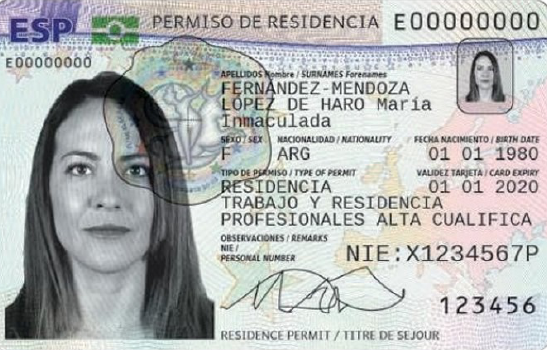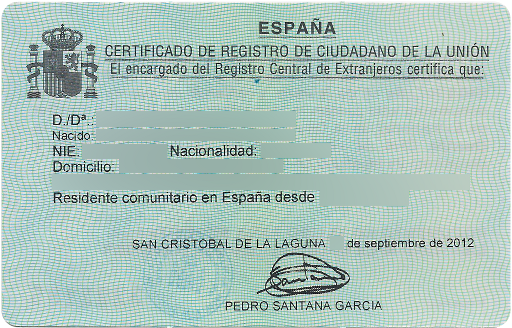So you’re a foreign resident in Spain with either a green residency certificate if you’re from the EU (Certificado de Ciudadano la Unión), or a TIE card (Tarjeta de Identidad de Extranjero) if you’re a non-EU national.
Perhaps you’ve had your wallet stolen or you’ve tried endlessly to find your Spanish residency document to no avail.
What should you do in order to get a new residency document?
The first step to take is to go to your local police station.
Police officers may ask you to report the loss through a denuncia (complaint) depending on the circumstances.
They will give you a document with details about the denuncia.
If your wallet was stolen or you left it somewhere, there is a high chance that it will be returned, even if the money you had in your wallet may not.
Remember to cancel any debit or credit cards if it’s your wallet that’s gone missing and not just your residency document.
If after three to five days you have been unable to retrieve your residency document, the next step to take is to request a duplicate.

How to request a duplicate of your Spanish residency document
If you need to get a new green residency certificate (Certificado de Ciudadano la Unión), or a TIE card (Tarjeta de Identidad de Extranjero), the process doesn’t involve having to submit additional documentation as is the case for first-time non-EU residency applicants.
Applying for a duplicate is similar to a residency document exchange or renewal, it is more straightforward and involves fewer background checks.
That’s because losing your Spanish residency document or having it stolen does not mean you’ve lost your residency status.
In order to start the duplicate process, you will have to request a cita previa (prior appointment) at a police station or extranjería (migration) office near you.
You should technically do this within 30 days of having lost your Spanish residency document.
This is done online via the following website and choosing your province in Spain.
If you’re an EU citizen you’ll need to choose the “Certificado de Registro de la Unión” option and if you’re non-EU you’ll have to choose the “Expedición de tarjeta y renovación de tarjeta” option.

There may also be an option available to British applicants exclusively, given their new status post-Brexit. Britons who lost an old green certificate issued to them when they were still EU nationals are likely to be given a TIE card to replace it.
Once you’ve got an appointment, you need to get several documents ready to get the processes completed. These are:
- Fill in and take with you form EX-17, which you can download here. When filling in the form, make sure you tick the box at the bottom which reads “DUPLICADO POR ROBO, EXTRAVÍO, DESTRUCCIÓN O INUTILIZACIÓN”.
- Pay fee 790/012 at any bank branch and get proof of payment to take with you to your appointment. You can fill in the form here. Depending on your residency document, this will cost anywhere from €12 to €21.44.
- Get a photocopy or colour copy of your passport and take it with you, along with your actual passport.
- Get three photos (passport type) of yourself against a white background. Most photography studios in Spain offer this service.
- Take the denuncia document with details of the theft or loss with you.
Take the above documents with you to your appointment at the police station or extranjería office.
In theory, you should be issued a new TIE or green certificate within 40 to 45 days.
Depending on where you are in Spain, you may need to get another appointment in order to pick your new card up.
Your new residency document will include the same NIE foreigner ID number, as this never changes and it should include the same issuance and expiration details (if applicable) as your previous residency document.
If you’re a third-country national and you need to travel urgently before then, you should bring it up with the police officer dealing with your case.
They are likely to suggest that you use the proof they give you that your card is being processed as a means of applying for the autorización de regreso (authorization to return to Spain), which you will also need to get a cita previa for and present other documents.
This document will mean border officials in Spain will allow you to return to the country despite not having a valid residency permit.
READ ALSO:
How Brits in Spain can exchange a green residency document for a TIE




 Please whitelist us to continue reading.
Please whitelist us to continue reading.
Member comments